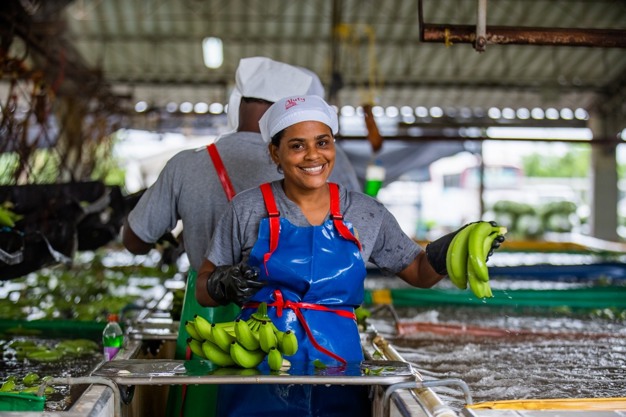Fairtrade has been a key tool in the Latin American banana market, seeking to guarantee minimum prices that allow producers to be economically viable. However, global market conditions have complicated achieving this goal. Pressure to keep costs low and competition between large producers have reduced opportunities for small farmers, who have difficulty obtaining prices that cover their production costs and ensure their long-term viability.
One of the main challenges banana producers face is the market pressure to keep prices low. Over the last ten years, production costs have increased by 47% and export costs by 39%, particularly affecting small producers. "The big challenge is that producers do not set prices for their product, the market decides. The markets demand more sustainability but prices do not reflect this," stated Marike de Peña, Fairtrade representative.
In the global market, competitiveness in the banana sector increasingly relies on cost efficiency and adherence to new regulations. "In the case of Ecuador, the Fairtrade price has increased by 40 cents per box, which is the minimum price in the country," Marike stated. In addition, producers receive a premium of $1 per box exported, which they can invest in social, environmental, and economic improvements in their farms and communities. Currently, 92% of the world's Fairtrade bananas come from Latin America and the Caribbean.
Fairtrade operates in seven Latin American banana-producing countries: Ecuador, Peru, Colombia, the Dominican Republic, Panama, Mexico, and Nicaragua. Colombia and Ecuador lead the volume of Fairtrade banana sales, with 56% of the market, which marks considerable growth for Ecuador in recent years. However, the market trend does not favor small producers, as demand for their fruit has considerably declined in international markets. "The market is buying less and less fruit from small producers, which significantly affects Peru, the Dominican Republic, and Ecuador," Marike said.
The sector also faces climatic and phytosanitary challenges. Peru is dealing with the Fusarium and the Dominican Republic is affected by the impact of climate change. "The cost of production in the Dominican Republic is high because productivity is very low," Marike said. The production structure also varies from country to country: in Ecuador, producers have an average of 10 hectares; in the Dominican Republic, 4 hectares; and in Peru, less than one hectare, which limits their competitiveness and investment capacity.

In addition, the new European Due Diligence legislation, which will come into force in 2027, will require companies to be more socially and environmentally responsible, which will increase pressure on Latin American exporters.
"The consumer is not responsible for the low prices. It's the supermarkets' commercial strategy to keep the banana prices low to attract more customers. We need to raise awareness and make trade fairer," Marike concluded. Despite the challenges, the banana market is facing a transformation scenario in which profitability, regulatory compliance, and product differentiation will be important to remain competitive.
 For more information:
For more information:
Marike de Peña
Fairtrade
Email: marike.p@clac-comerciojusto.org
www.clac-comerciojusto.org
